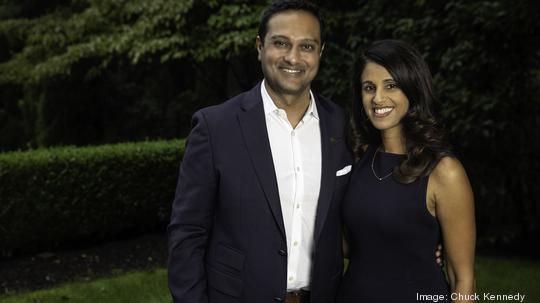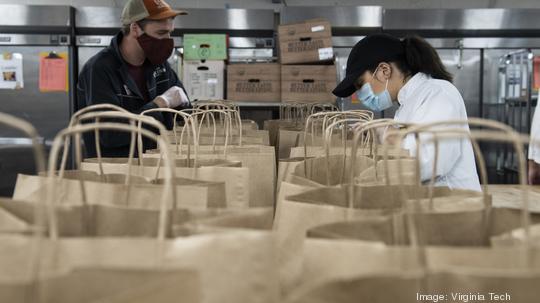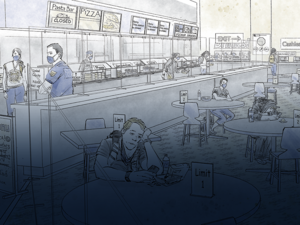
Two Greater Washington Virginia Tech alumni have donated $1.5 million to launch an online food bank service for students who experience food insecurity, the university said Wednesday.
Mehul Sanghani, CEO and founder of Octo Consulting Group, and his wife Hema, a manager at CGI Federal, made the donation after approaching the university with the idea in the fall of 2019.
The couple, who met as undergraduates at Tech and graduated in the late '90s, were looking for philanthropic opportunities in the area of hunger and food insecurity. The two made a visit, in summer 2019, to The Store, a free grocery in Nashville, Tennessee, which partners with Belmont University.
While both grew up with parents who had emigrated from India with nothing but the “clothes on their backs,” Mehul Sanghani said in an interview, both also said they were fortunate to have never known life without a hot meal.

“A student should not have to worry about where they will get their next meal from while pursuing an education,” Hema Sanghani said in an interview. “Some of these students are the first in their family to go to college. Trying to find employment during a pandemic is difficult.”
The Sanghanis' donation will fund The Market at Virginia Tech, which will supply 75 students per semester with weekly packages of enough fresh groceries to make roughly seven days worth of meals, the university said. Students are able to go online to order the ingredients included in their packages, something the couple hopes will help make recipients feel more comfortable with the service.
Hunger is an issue that lurks in the “shadows,” Mehul said, partly because students don’t want to bring attention to themselves. A VT study from late last year found that roughly one in three of the school’s students self identified as food insecure.
“There is a dignity aspect to this, which is why students don’t want to come forward,” Mehul said. “One of the unique aspects of this is maintaining the anonymity of those who participate.”
The Market was launched as a pilot in summer 2020. The feedback from students has been positive, said Mehul, who serves on Virginia Tech’s board of visitors.
The couple's goal was to donate enough to seed the program and ensure its long-term success. But the program is also accepting further donations though Virginia Tech's website.

